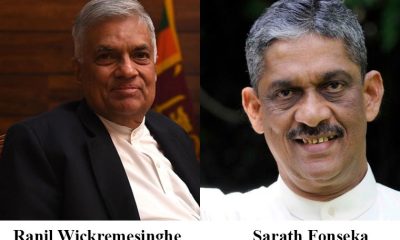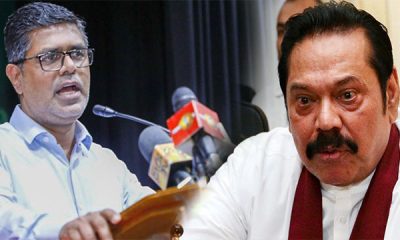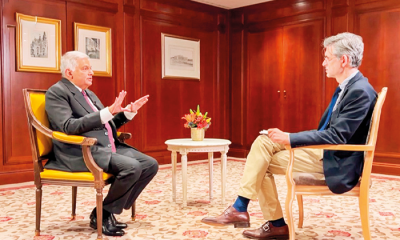News
MR asks Ranil to suspend privatisation projects

SLPP leader Mahinda Rajapaksa, MP, has asked President Ranil Wickremesinghe to suspend ongoing privatisation projects, pending the conclusion of the presidential polls scheduled for Sept/Oct this year.
Former President Rajapaksa has said in a media statement: “The present government is an interim arrangement formed to run the country for the remainder of former President Gotabaya Rajapaksa’s term. Even the pro-privatisation lobby should realise that the hasty divestiture of state-owned assets at a time like this will not produce the best outcome for the country. Furthermore, the next Presidential Election is only a few months away.
Hence, as a measure to ease the widespread discontent over the government’s divestiture drive, I wish to propose that all moves to sell off stateowned assets or enterprises be postponed until a new government is formed after the next Presidential Election. The new government will then be able to deal with state-owned properties and enterprises in accordance with the mandate they obtain at the election.”
Full text of the statement:
“The government’s plans to sell off certain national assets and state owned enterprises have given rise to discontent among trade unions, political parties and the general public. The present divestiture drive is ostensibly aimed at minimizing govt. expenditure on loss-making state-owned enterprises and meeting certain IMF conditions in that regard. I ruled the country for more than nine years, from November 2005 to January 2015, without ever selling a single state-owned enterprise. In fact, my government actually re-acquired some state-owned enterprises, such as the Insurance Corporation, and Lanka Hospitals, that had been sold off by previous governments, and these enterprises continue to make profits for the state to date.
My government had a pragmatic approach towards state-owned assets and enterprises. If a state-owned enterprise was making profits and providing a good service to the public, we saw no reason to privatize it. At times, a government may take a strategic decision to manage the prices of certain goods or services produced by state-owned enterprises for the overall benefit of the economy or to help low-income earners. The energy sector is a good example of this. There is no government in the world that does not subsidise certain earmarked economic activities.
During my tenure as President, even if some state-owned enterprises made losses due to a government decision to manage prices, our management of the economy resulted in an unbroken nine-year economic boom. We had no difficulty in paying off our debts or meeting the costs of the subsidies we maintained and nobody even spoke of privatisation when I was President. Since the divestiture of certain sectors can have far reaching consequences for the country, especially when foreign parties are involved, this is an issue that has to be approached with caution.
As was resolved at the SLPP May Day rally, any restructuring of state-owned enterprises should take place with maximum transparency, according to a national plan, in a manner consistent with national security and in consultation with the employees.
Having said that, I wish to stress that the trade union sector, for its part, should take a more nuanced approach towards private sector participation in state-owned enterprises. Going by the dictionary definition of privatisation, any involvement of the private sector in the ownership structure or the control of a state-owned asset or enterprise can be characterized as privatisation. However, trade unions should not oppose every attempt to obtain foreign or private sector investment in a government owned enterprise. A pragmatic and non-dogmatic approach to such matters is required.
If there are unutilized government properties or underperforming government enterprises, it makes sense to obtain private sector participation to turn such enterprises around. If a profitable state-owned enterprise needs further investment to add a new feature which cannot be financed by the government, it makes sense to award a share of that enterprise to a private investor in exchange for the investment. If an investor is willing to build a new enterprise from scratch, it makes sense to award shares in that enterprise to the investor so that a new state asset comes into being.
Some political parties have an ideology driven, dogmatic approach to privatization and seeks to privatize anything and everything that can be privatized. Many trade unions also have a similarly dogmatic attitude and tend to oppose any involvement of the private sector in state-owned enterprises. Both these extremes are harmful to the country. Trade unions should regard proposals to obtain private or foreign participation in a state-owned enterprise on a case by case basis and look at the overall benefit of such collaboration to the country.
The only real way national assets and strategically important state-owned enterprises can be safeguarded is by having a government that takes a pragmatic and non-dogmatic approach to such matters. This is why it is important to take note of the fact that when I ruled the country for more than nine years, the economy flourished and there was not even a discussion on the subject of privatisation.”
Latest News
Advisory for severe lightning for the Western and Sabaragamuwa provinces and Galle and Matara districts
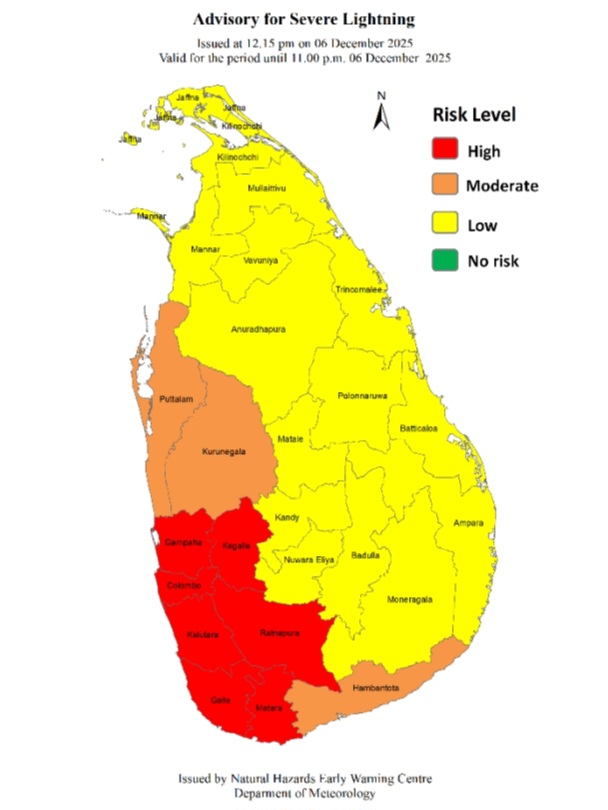
Advisory for Severe Lightning Issued by the Natural Hazards Early Warning Centre at 12.15 p.m. 06 December 2025 valid for the period until 11.00 p.m. 06 December 2025.
The public are being cautioned that thundershowers accompanied with severe lightning are likely to occur at some places in the Western and Sabaragamuwa provinces and in Galle and Matara districts.
There may be temporary localized strong winds during thundershowers.
The General public is kindly requested to take adequate precautions to minimize damages caused by lightning activity.
ACTION REQUIRED:
The Department of Meteorology advises that people should:
Seek shelter, preferably indoors and never under trees.
Avoid open areas such as paddy fields, tea plantations and open water bodies during thunderstorms.
Avoid using wired telephones and connected electric appliances during thunderstorms.
Avoid using open vehicles, such as bicycles, tractors and boats etc.
Beware of fallen trees and power lines.
For emergency assistance contact the local disaster management authorities.
News
Government briefs Diplomatic Community on recovery progress

A special briefing for the diplomatic community in Sri Lanka was held on 4 December at the Ministry of Foreign Affairs, Foreign Employment and Tourism, chaired by Prime Minister Dr. Harini Amarasuriya together with the Minister of Foreign Affairs, Foreign Employment and Tourism, Vijitha Herath. Senior government officials, including representatives of the Disaster Management Centre (DMC) and the Sri Lanka Tourism Development Authority (SLTDA), also participated.
Opening the session, Prime Minister Dr. Harini Amarasuriya expressed her gratitude to the diplomatic community for their immediate support and solidarity following the recent floods and landslides. She noted that Sri Lanka had endured one of the most severe disasters in recent years, but the resilience of the people and the coordinated efforts of government agencies had enabled a rapid response and significant progress in relief operations. She confirmed that not a single tourist has been reported harmed during the disaster and noted that the previously inaccessible areas are now reachable. Massive cleanup and decontamination operations are underway to ensure that lands and public spaces are safe for return, and communications have been restored in the affected areas.
The Prime Minister emphasized that relief, evacuation, and emergency assistance were carried out with the collective effort of the tri-forces, police, public officers, health workers, volunteers, and local authorities. She acknowledged the continuing challenges, including the restoration of infrastructure, resettlement needs, and long-term disaster-mitigation work, and welcomed the technical, humanitarian, and financial support offered by partner countries.
Maj. Gen. Sampath Kotuwegoda (Retd), Director General of the Disaster Management Centre, delivered a detailed presentation on the current status of the disaster, including the number of affected families, evacuation centres, damage assessments, and the ongoing coordination with international agencies for recovery planning. The cyclone affected almost the entire country, with 22 districts severely impacted. Some locations recorded up to 540 mm of rainfall and winds of up to 70 km/h, causing widespread infrastructure damage. Early assessments indicate that 2.3 million people were exposed to flooding, with 1.8 million people directly affected on the ground and 1.1 million hectares of land impacted. The assessment also identified 40,152 pregnant women among those affected, who have been prioritized for support. He also highlighted areas where further technical cooperation, such as early-warning systems, mapping capabilities, and climate-response technologies would be valuable.
Buddhika Hewawasam, Chairman of the Sri Lanka Tourism Development Authority, briefed the diplomatic community on the impact of the disaster on the tourism sector. He reassured attendees that major tourism zones remain operational, safety assessments are underway, and contingency measures have been activated to support visitors and protect the industry during the upcoming peak season. The Chairman of the Hotel Association of Sri Lanka Ashoka Hettigoda confirmed that the Coastal and resort hotels from Maravila to Passikudah are operating, with many reporting 60–65 percent occupancy; the hotels in Nuwara Eliya are partially operational. He made an appeal that the best assistance that the international community can give to Sri Lanka is the continued support provided through tourism.
Several diplomats conveyed their condolences to affected communities and reaffirmed their governments’ readiness to assist Sri Lanka in both immediate relief efforts and long-term rebuilding. They expressed appreciation for the government’s transparent engagement and the coordinated approach to managing the crisis.
Prime Minister thanked the diplomats for their continued cooperation and underscored the government’s commitment to ensuring an effective and inclusive recovery. She stressed that strengthening disaster preparedness, climate resilience, and institutional capacity will be central to Sri Lanka’s national development agenda moving forward. Deputy Minister of Foreign Affairs, Foreign Employment and Tourism, Arun Hemachandra, Secretary to the Prime Minister, Pradeep Saputhanthri, and Secretary to the Ministry of Foreign Affairs, Ms. Aruni Ranaraja, also attended the meeting.

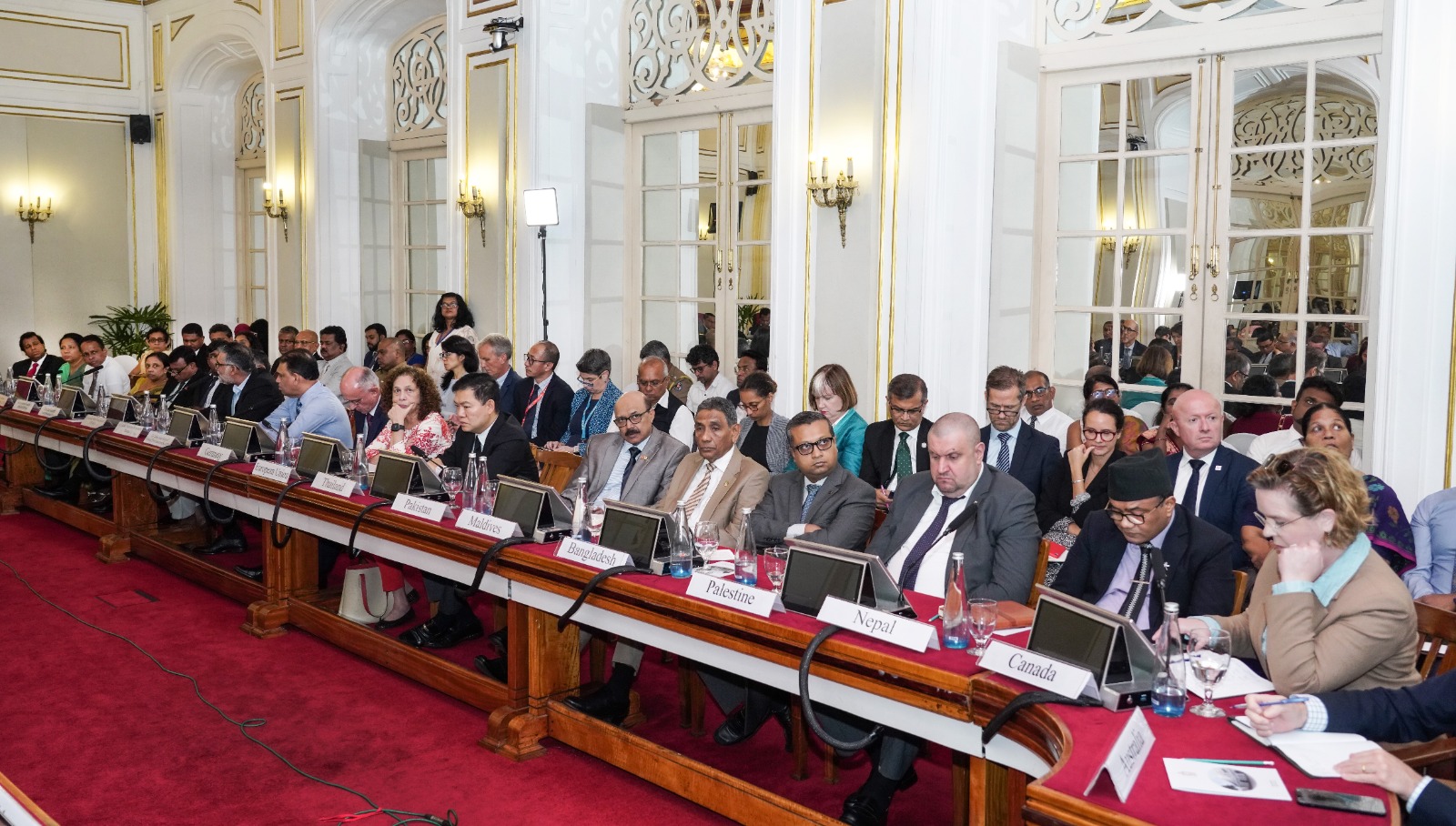
[Prime Minister’s Media Division]
News
All parties have agreed to recruit Development Officers into the teaching service through a competitive examination – PM

Addressing Parliament on Friday (05), the Prime Minister stated that, in accordance with the Supreme Court decision, the recommendations issued by the Public Service Commission, and the Sri Lanka Teachers’ Service Minute, all parties have agreed to recruit teachers through a competitive examination. The Prime Minister further noted that during the second phase of the recruitment process, the Development Officers currently serving in schools will be given preference during the interviews.
Addressing further, the Prime Minister stated,
“In compliance with the final order of the Supreme Court and the provisions of the Sri Lanka Teachers’ Service Minute, the Development Officers will be given the opportunity to join the Sri Lanka Teachers’ Service.
It has been decided to revise the maximum age limit of 40 years, as specified in the examination notification for applicants, to 45 years for this instance only”.
The Prime Minister further stated that, in accordance with the Supreme Court decision, arrangements have been taken to revise the age limits for graduates employed in the public service and graduates not employed in the public service, and to conduct separate examinations accordingly, in order to recruit teachers to Grade 3. i (a) of the Teachers’ Service to fill the available vacancies.
[Prime Minister’s Media Division]
-
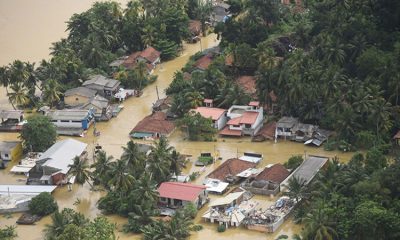
 News7 days ago
News7 days agoWeather disasters: Sri Lanka flooded by policy blunders, weak enforcement and environmental crime – Climate Expert
-
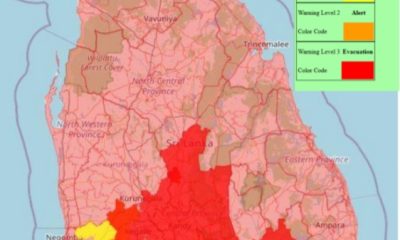
 Latest News7 days ago
Latest News7 days agoLevel I landslide RED warnings issued to the districts of Badulla, Colombo, Gampaha, Kalutara, Kandy, Kegalle, Kurnegala, Natale, Monaragala, Nuwara Eliya and Ratnapura
-
News4 days ago
Lunuwila tragedy not caused by those videoing Bell 212: SLAF
-

 News2 days ago
News2 days agoLevel III landslide early warning continue to be in force in the districts of Kandy, Kegalle, Kurunegala and Matale
-

 Latest News5 days ago
Latest News5 days agoLevel III landslide early warnings issued to the districts of Badulla, Kandy, Kegalle, Kurunegala, Matale and Nuwara-Eliya
-
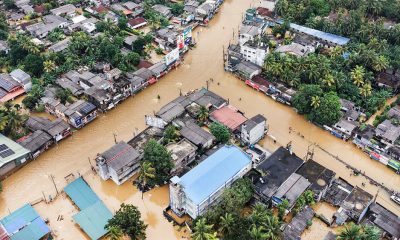
 Features5 days ago
Features5 days agoDitwah: An unusual cyclone
-

 Latest News5 days ago
Latest News5 days agoUpdated Payment Instructions for Disaster Relief Contributions
-

 Latest News7 days ago
Latest News7 days agoWarning for Cyclonic storm “Ditwah” issued at 05.00 p.m. 29th November 2025


